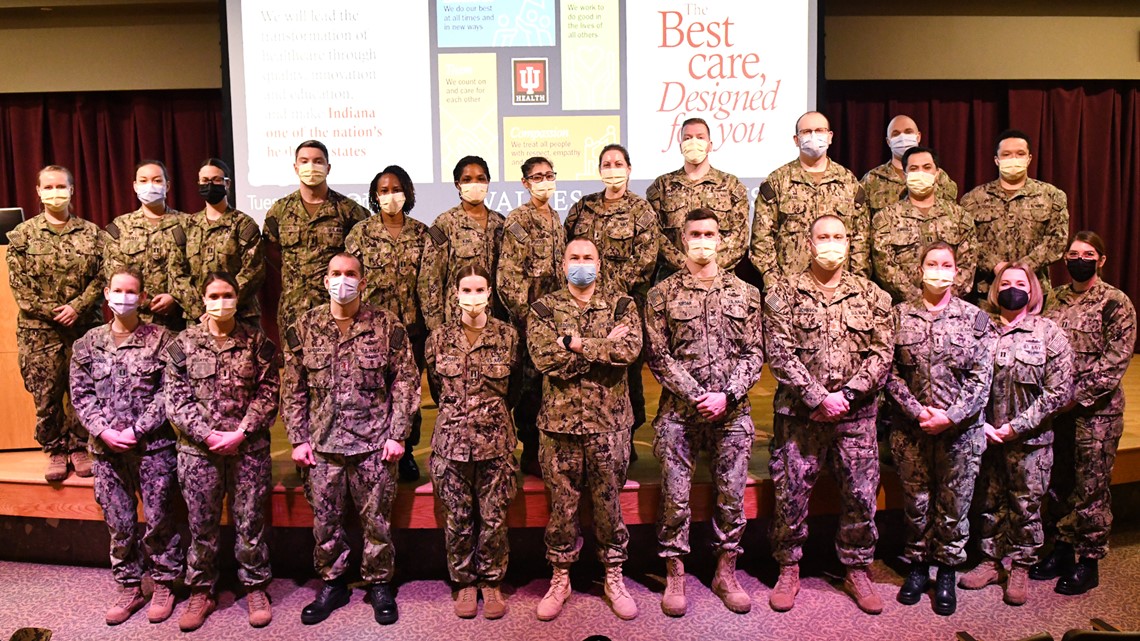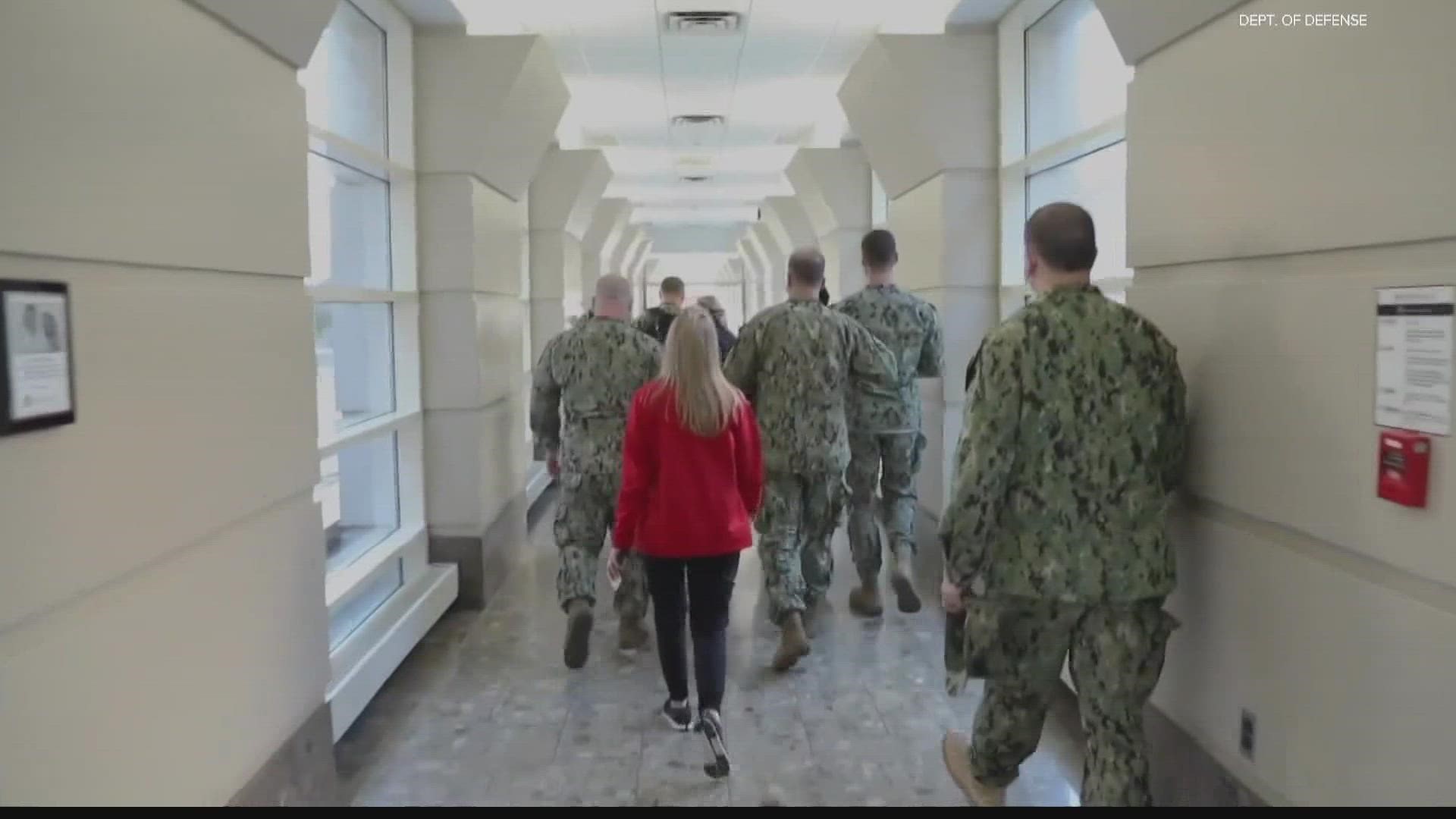INDIANAPOLIS — After a monthslong surge in COVID-19 cases, hospitals are finally feeling some relief, but the number of patients with other illnesses and injuries still remains high.
"Our cases are coming down and they are coming down significantly in the community too due to the omicron variant," said Dr. Michele Saysana, chief patient safety and quality officer at IU Health.
At its peak in January, IU Health was treating more than 600 COVID-19 patients across its hospitals. As of Tuesday morning, that number dropped to 256.
With the drop in cases, the U.S. Navy team officially ended its stay at IU Health Methodist Hospital after a 60-day deployment Tuesday morning.
"That not only helped our patients, but also helped support our staff getting through one of the more difficult COVID surges that we had," said Dr. Mark Luetkemeyer, vice president and chief medical officer at IU Health.
But IU Health officials said they remain cautiously optimistic about any future surges.
"We are still extremely busy. Our hospitals are still extremely full. It’s just a different type of full," Luetkemeyer said.
At the same time, hospitals are still dealing with burnout and exhaustion from the pandemic.
"I think some relief that things look a little bit better, but at the same time, a lot of fatigue. I think it’s been a long two years and people are tired," said Dr. Chris Weaver, chief clinical officer for IU Health.


With the window of relief in COVID-19 cases, IU Health is also trying to catch up on elective surgeries that were postponed during the latest surge.
"We have brought back a few surgeries. We are not back to full capacity on that yet, but we are working our way towards that," Luetkemeyer said.
As the virus continues to stick around, health officials are looking toward the future and how to manage it.
"Realizing that COVID is probably going to be here like other respiratory viruses are, like influenza and the other viruses we see, but I think that’s where most of us are. We are figuring out how we live with it," Saysana said.
Doctors say their best advice right now is to stay home if you don’t feel good and, of course, get vaccinated.

